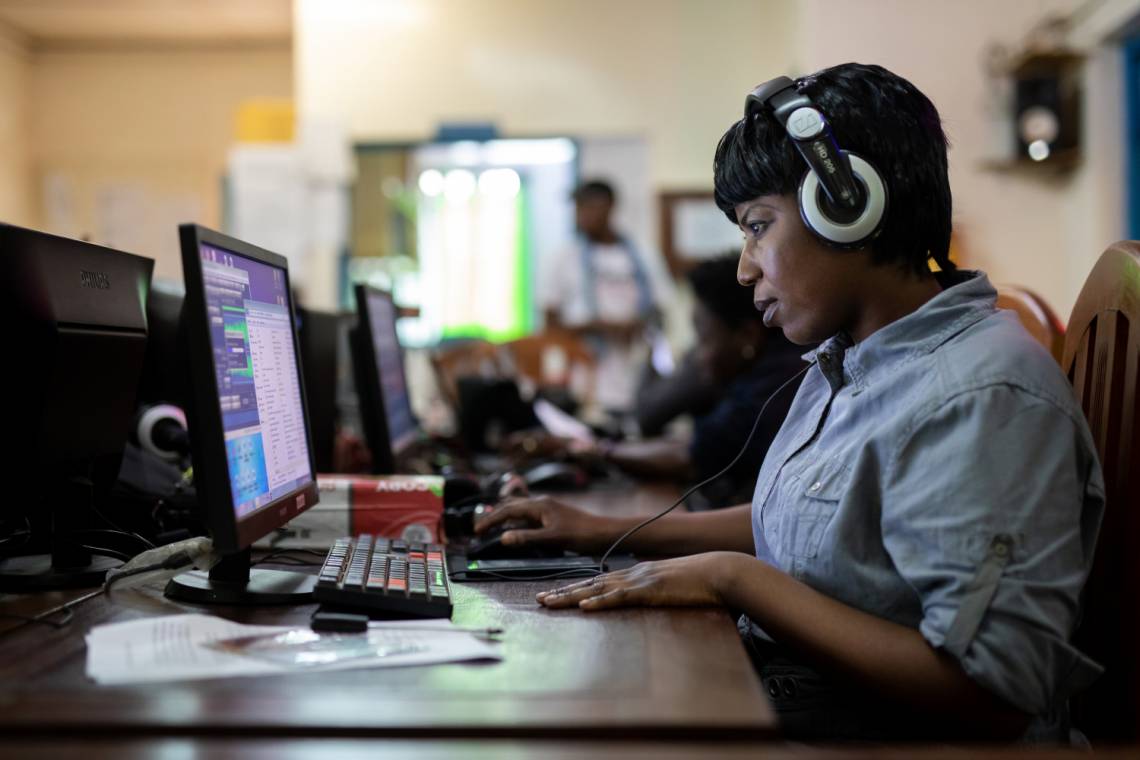Two six-day training sessions were organised in Bangui at the beginning of April by Fondation Hirondelle for 22 correspondents and radio partners of Radio Ndeke Luka. They provided a reminder of the basic principles of news verification in the context of a health crisis, and produced specific content on the challenges of the COVID-19 pandemic.
The training took place in Bangui at the premises of Radio Ndeke Luka (RNL) from 25 March to 6 April. It was led by Emmanuel de Solère Stintzy, a journalism trainer and editorial consultant in CAR for Fondation Hirondelle. It brought together two successive groups of 11 people each, correspondents from Radio Ndeke Luka and journalists from partner radio stations, who came from different regions of the country for the occasion. The training was above all practical: participatory teaching modules, editorial conference, production of reports in the field and a health magazine with RNL's mobile studio at the end of each of the two sessions. Participants were able to take home the magazines produced for broadcast in their localities and by their community radios.
The aim of these two workshops was to remind correspondents and community radio staff of the basics of news verification. The aim was also to help them produce reports for RNL's health magazines and their radio stations on health issues related to the Covid-19 pandemic.
The training included the following topics :
- the importance of varying the sources on health issues and not limiting themselves to a single interview with a specialist
- the interest of varying journalistic formats within a health magazine for a better engagement with the listeners : sketch, testimonials, reports, vox-pop, etc.
- the social responsibility of the media and journalists on health issues, where the dissemination of errors or approximations can lead to risky behaviour
- the need to work as a team to choose original topics/angles, verify information and produce a magazine with rich and diversified content
- the need to be well prepared and to do appropriate research before producing health stories.
« Before following this training, I was in the abyss, says Frédéric Wagbenou, correspondent for Radio Ndeke Luka in Bozoum, and editor-in-chief of a community radio station in that town. I now know how to organise my newsroom better and write radio stories. I discovered how to prepare and produce a health magazine with a storyboard, rich in different journalistic formats. It gives us a framework to make stories that are relevant, useful, new and interesting for our listeners. » For his part, Magloire Ndoroma, director of Radio Ouham Fafa in Batangafo explains: « This training has revived in me certain journalistic ethical principles. I understood a lot about formats such as the portrait or the micro-programme to feed health magazines. Back in my radio station, I will give feedback to enable everyone to work well and help my station to progress in terms of content. »
